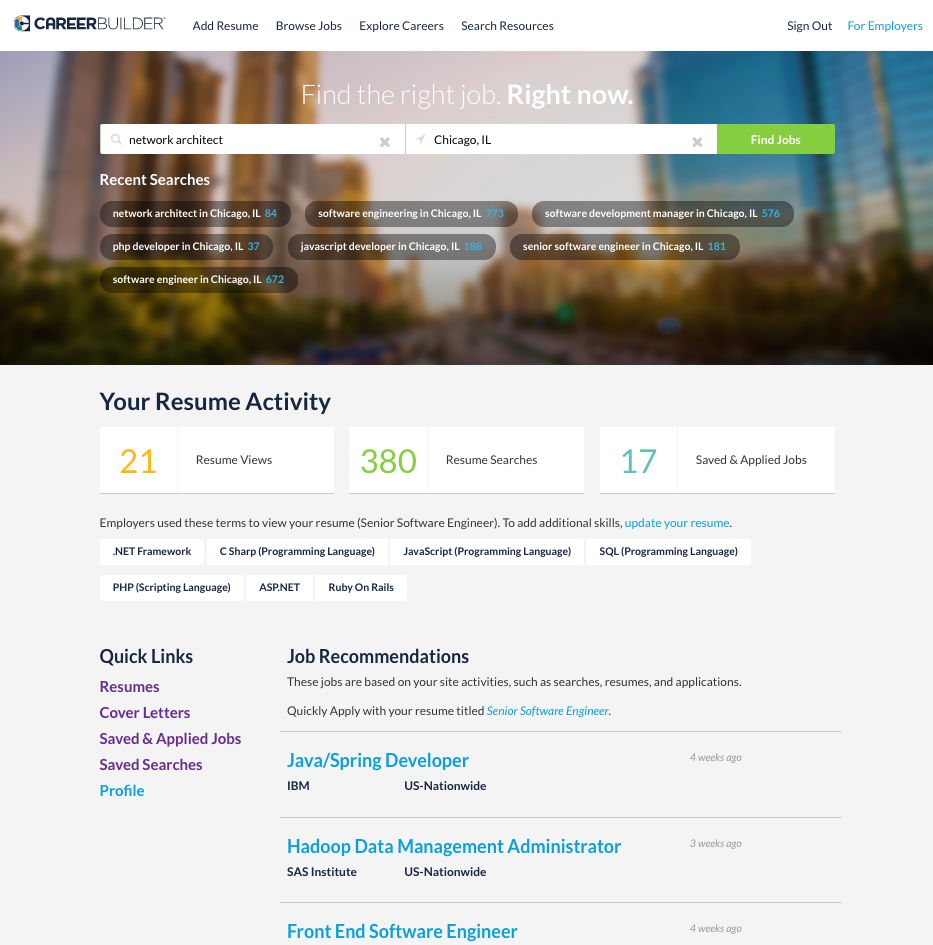
Your days of playing the guessing game when it comes to employers' interest in you as a candidate are over. Here's why.
You upload your resume. And then you wait. And wait…And wait.
The hiring process has traditionally been a one-sided affair, with employers having the upper hand -- and job seekers often left wondering if anyone has shown interest in them as a candidate (or has even viewed their resume).
But no more.
As a job seeker, you no longer need to play the guessing game when it comes to employers' interest in you as a candidate. CareerBuilder has just launched some exciting new features that tell job seekers which companies are viewing their resumes -- and more importantly, why.
How it works
After you post a resume on CareerBuilder.com, simply visit the home page to see:- Your views: Up-to-the-minute information on the number of times your resume has been viewed.
- Your search mojo: The frequency in which the resume has come up in company searches.
- Why employers are viewing your resume: See the search terms an employer used to find you for insight into how and why you're showing up in their results.

Cue your happy dance.
We're really excited about this new feature, and hope you are, too: It gives you an unprecedented gauge of whether you have the right keywords in your resume to attract desired employers -- or whether you're off the mark and need to rethink your strategy.
Getting some bites?
If an employer has viewed your resume in our database, don't delay: "Quick apply," available on over half of our jobs, enables you to apply with the click of a button through either your desktop or mobile device. (Haven't uploaded a resume yet? It's easy.)Matt Ferguson, CEO of CareerBuilder, also gives a sneak peek of more changes to come:
"In the future, we will also be providing recommendations to job seekers on which phrases they should use in their resumes to increase their chances of getting noticed."

